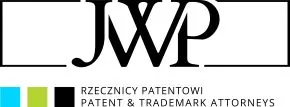Nowadays, information is often identified as the most valuable commodity to be acquired or sold. Indeed, the community of entrepreneurs and scholars increasingly recognises patent information, the quintessence of scientific and technical information primarily found in the content of patents granted or descriptions of inventions for which protection is being sought, as crucial to the success of their projects or business ideas.
It is a challenging task to find the data we seek in in such a vast collection. This is why we now have databases that compile patent information. Long gone are the times when patent documentations were to be found on library shelves, and were later delivered on CDs or DVDs; nowadays we have at our disposal a variety of online search tools to find the information we need in invention descriptions or utility models from the field of technology that we're interested in. Access to some of the public search engines is free of charge, while in order to use often more complex commercial tools it is necessary to purchase subscriptions, which sometimes means regularly paying hefty fees.
Most free search engines are electronic databases of particular national patent offices, which, despite the often not-so-user-friendly interface, have the major advantage of the information contained there being regularly updated by office employees. Other noteworthy services include esp@cenet and the European Patent Register, which allow for a high-quality search of European patents. However, they do have some substantial drawbacks, such as the lack of an option to search the content of patent claims that, in fact, determine the scope of patent protection. Google Patents seems to be a tool sufficient to conduct a preliminary search, except for the fact that, so far, it only provides patent collections from 17 countries around the world, which is still not enough to give a comprehensive picture of the state of the art for more advanced patent analyses such as, say, assessing the patentability or clearance of a solution.
Unlike free tools, commercial search engines such as Thomson Innovation, Thomson Reuters, and PatBase Minesoft allow for selecting a collection of patent documents from virtually all over the world. In addition, they contain abstracts of Asian patent publications translated into English, which makes the work far easier. The content of such English-language abstracts is often re-edited so as to underscore the novelty of the invention and describe the problem it overcomes. Clear advantages of paid search engines include the option to create complex search strategies that take into account multiple parameters, such as keywords, classes, time intervals, and geographical scope. In addition, they allow for conducting a full-text search, rather than one based solely on the title of the invention, which is often misleading. Apart from the key features described above, these databases are equipped with various add-ons, such as statistical tools, trend analyses, and result visualisations. Yet another interesting tool offered by commercial search engines, such as Ambercite, is to search for similar patents based on cross-citations between documents.
To sum up, if you are interested in searching for specific patent information, you have at your disposal a number of tools that will allow you to accomplish the task. Now, if you are undertaking patent research in order to acquire the big picture of a given field of the art, free public search engines may be enough. How should one proceed, though, if the patent research is to serve as a basis for making a decision essential for the development of a company, whether it regards the final shape of the solution being developed or plans to expand to other markets?
Here, it all boils down to the reliability and dependability of the tool you use, since the data accumulated in the form of patent documents should be as complete and as recent as possible. On the other hand, while researching patents, it is highly important for the person conducting the search to have the experience and the skill to construct advanced search queries/search strategies. It often turns out that even the most modern tools cannot replace the searcher's intuition when it comes to matters such as the choice of the appropriate IPC, i.e. International Patent Classes, to be searched. It is worth trusting the specialists, whose experience may be the key to finding just what we're looking for.
The content of this article is intended to provide a general guide to the subject matter. Specialist advice should be sought about your specific circumstances.


